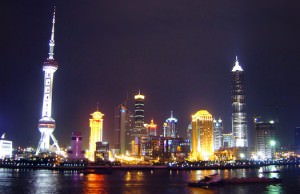Has China Lost its Touch?
Could the recent hit to the housing sector threaten the nation’s rise to prosperity?
By Siavosh Moshiri, Staff Writer
In 2010, a shift in the balance of the world economy occurred. It had been expected for quite some time since China replaced Japan as the world’s second largest economy. Wang Tao, an economist at the UBS bank in Beijing voiced the thoughts of many: “This is just the beginning.”
Who could disagree? It was a nation of more than a billion that was gaining more and more every day. Chinese firms appeared to improve their technologic capabilities on a monthly basis. The metropolises of Beijing and Shanghai received more and more immigrants from the less advanced eastern provinces each day. With continuous investment from Western companies, there were plenty of jobs (as long as you could stomach the sub standard working conditions). From 2000 to 2010, the economy grew at an average of 8 per cent each year.
At one time, it was customary – nay, necessary – for Chinese men and women to go to other countries to educate themselves and to get a chance at a better life. Now? The “sea turtle” effect is in full swing; Chinese immigrants who had spent years in Canada, USA and England were packing up en masse to come back to take advantage of an unemployment rate that hovered around 4 per cent. [pullquote]The “sea turtle” effect is in full swing; Chinese immigrants who had spent years in Canada, USA and England were packing up en masse to come back to take advantage of an unemployment rate that hovered around 4 per cent.[/pullquote]However, it appears those who are coming back might have to learn to temper their expectations. Signs now appear that this robust growth is coming to a slow end.
While the economy is still growing (the economy grew by around 8 percent when comparing the first quarter of this year and last), most of this growth was occurred last year. Statistics for the housing market, a significant aspect of the country’s GDP, show that housing sales, land sales and construction start-ups are down compared to a year ago. Moody’s recently released a report stating numerous concerns about the impending cash squeeze China’s real estate developers are going to face due to the slowdown in real estate sales. These developers, who employ many, owe substantial interest payments on loans.
All of this could lead to a possible worst case scenario, where this growth continues and rising unemployment becomes a significant factor. China’s highly leveraged real estate developers (along with state-owned enterprises and municipal governments) face insolvency and default. This leads to a domino effect whereby medium- and small-sized firms lay off workers. The export sector, an area in which many important foreign companies such as Apple and Nike have invested heavily, would contract dramatically.
However, China possesses some qualities that may allow it to escape such a scenario. Unlike many other nations, the government possesses a vast amount of financial resources, meaning it can increase spending drastically. Banking is effectively state-owned, which means that such a crisis could be expected only when the entire state nears insolvency, a result which is still far from being realized. In addition, even taking into consideration the debt the municipal governments in China have amassed over the past few years, the debt to GDP ratio still remains respectably low.
However, when analyzing the long-term approach, there are clear lessons to be learned by the Chinese government. The current banking system, while allowing them stave off any short-term threats, has done a rather poor job of allocating funds to consumers. At the same time, many state-led projects have suffered from corruption and misspent funds. In the future, experts hope to see the Chinese government relax their hold on major industries such as banking to not only allow for more innovation, but to make sure the country’s market won’t be so dependent on the government.
Sources:





























Share the post "Has China Lost its Touch?"